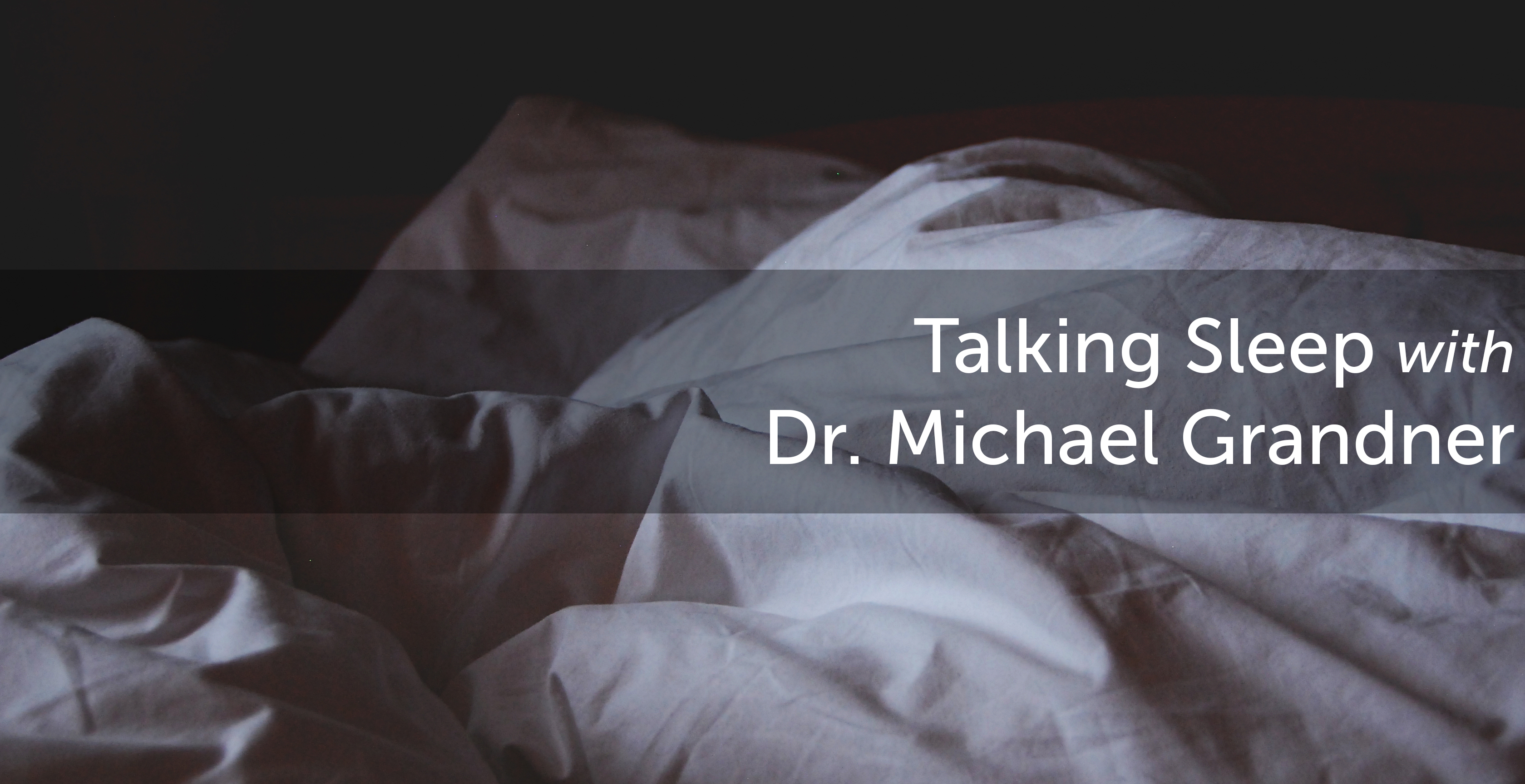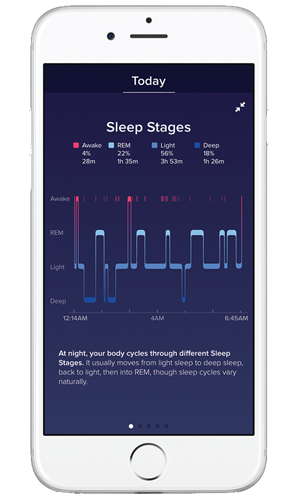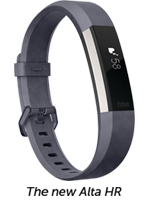
Here at Fitabase, we’re big fans of the personal health and behavioral data consumer devices can support. One of the data types we’re most interested in is sleep. We hear from our customers all the time that they’re using wearable devices because they can automatically track sleep and provide insights into what’s going on when participants and patients lay down at night to rest.
 On March 6th Fitbit announced two new big updates to their existing product line. First, they announced the upcoming release of the Alta HR - the world’s slimmest activity tracker with continuous heart rate. They also announced an upcoming update of their sleep tracking technology. Soon the Alta HR, Charge 2, and Blaze will use a combination of accelerometer and heart rate data to detect sleep stages. In light of this exciting new feature we spoke to Dr. Michael Grandner, director of the Sleep and Health Research Program at the University of Arizona and member of the Fitbit Sleep Research Panel.
On March 6th Fitbit announced two new big updates to their existing product line. First, they announced the upcoming release of the Alta HR - the world’s slimmest activity tracker with continuous heart rate. They also announced an upcoming update of their sleep tracking technology. Soon the Alta HR, Charge 2, and Blaze will use a combination of accelerometer and heart rate data to detect sleep stages. In light of this exciting new feature we spoke to Dr. Michael Grandner, director of the Sleep and Health Research Program at the University of Arizona and member of the Fitbit Sleep Research Panel.
How do you think researchers and clinicians might be able to use this new data?
First, let me say that this isn’t intended to replace overnight sleep studies in a sleep lab. This is meant to do the things that a sleep lab can’t do - namely provide an easy and cost effective alternative to track the architecture of sleep over time. Most studies conducted in a lab are at best an artificial setting, and they’re expensive. Even with home-based polysomnography, at most you’re only getting a few nights of data and technicians are coming in and out to make sure everything is being done properly.
So, the benefit of using something like a Fitbit is that you can measure sleep and get data on sleep stages, for not just days, but weeks, maybe even months. You get this great longitudinal data set, and have the benefit of not disrupting the normal home sleep environment.
What kind of questions can we start to ask with this kind of data?
 This data becomes very important because it's the sleep stages data. To a lot of people that data is inherently interesting. Scientifically, it's actually relatively unknown how important they are outside of a laboratory setting. So to what degree are observed changes in deep or REM sleep related to outcomes that people actually care about? We know from the data out there that sleep duration is important, and insomnia symptoms are very important. We know that awakenings are very important. We know the quality of sleep is important. But how do the sleep stages relate to important health and disease outcomes?
This data becomes very important because it's the sleep stages data. To a lot of people that data is inherently interesting. Scientifically, it's actually relatively unknown how important they are outside of a laboratory setting. So to what degree are observed changes in deep or REM sleep related to outcomes that people actually care about? We know from the data out there that sleep duration is important, and insomnia symptoms are very important. We know that awakenings are very important. We know the quality of sleep is important. But how do the sleep stages relate to important health and disease outcomes?
Outside of a polysomnography study, is REM sleep really important for day to day function? These sorts of questions can't really be addressed using current technology because you can't really capture the longitudinal changes in sleep stages over days and weeks or months. With Fitbits you can maybe start to examine these questions in large numbers of people out there in the real world.
Sleep is related to a large number of physiologic processes. Everything from neurocognition to emotion regulation to memory functioning to inflammation to sympathetic activity. It's probably as important, if not even more so, than physical activity for health. Having a measure to follow people reliably over time in a good way, and being able to gather a wide variety of other metrics, opens up a lot of possibilities to explore.
Do you have any advice for researchers who are thinking about using Fitbits as part of their research?
One thing that I would say is to think about the strengths and limitations of the device. I think a lot of people, because they are not marketed as a research device, have an immediate reaction that it's therefore useless. I think that's a very black and white way of thinking that does a disservice to the questions we're trying to ask. If you do some reading on the accuracy of some of these devices you'll probably find that it's better than you thought. It can be very useful.
I feel like I'm having flashbacks to 15 years ago when we first started to talk about using actigraphy in sleep research, we a relatively small group. And everyone else kept telling us that it couldn’t track sleep. Well all of a sudden it takes off and now we have well documented guidelines from the Society for Behavioral Sleep Medicine for using actigraphy to measure sleep (link). I feel like we're having the same arguments all over again with these new wearable devices. My guess is that five to 10 years from now researchers will have wrapped their heads around what the strengths and limitations are and will not be so afraid of it.
I think the main thing for researchers to know is that you should leave some of your biases at the door. Look into the specs, because there's more information out there than you think there is.
We’re seeing increasing interest from clinicians who want to use wearables. What are some potential use cases for this type of sleep data?
 I think there's a couple of potential clinical uses for longitudinal sleep architecture data that people may, or may not have thought of because longitudinal sleep architecture data just doesn't really exist.
I think there's a couple of potential clinical uses for longitudinal sleep architecture data that people may, or may not have thought of because longitudinal sleep architecture data just doesn't really exist.
So if such a thing exists there's a few things that could be useful with type of tracking data. Let’s take treatment response for example. If you have a patient taking a medication or doing something that is known to change REM sleep you might be able to track and better understand that experience. If you're treating somebody and you know they're reporting better sleep, but still have a lot of fatigue during the day you might be able to better understand how time spent in different sleep stages might be affecting them, for instance getting decreased deep sleep may be reason why they’re feeling fatigued.
Thank you to Dr. Grandner for taking the time to share with us. We’re excited about the new sleep stage data and hope you are too! If you’re interested in using Fitbit devices and accessing sleep stage data as part of your research or clinical trial get in touch.